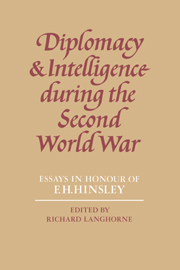6 - Italy's historians and the myth of Fascism
Published online by Cambridge University Press: 21 September 2009
Summary
In September 1955, some 2,200 delegates from thirty-five countries assembled in Rome for the Tenth International Congress of Historical Sciences. Commentary on the meeting was benign. A group of Russian scholars had attended for the first time, and if their papers were criticised as too uniform, their ‘urgent’ representations ensured, at least, that Russian was acknowledged as the sixth official congress language. The Vatican, too, had sent an official delegation. Indeed, despite the hot weather and the presence of the Soviet scholars, Pope Pius XII had come down from Castel Gandolfo in order to welcome guests with full pomp and ceremony.
Lay Italians had also worked hard to make the Congress a success. One of their number, Federico Chabod, was elected President of the central committee, whose task it would be to organise the next meeting set down for Stockholm (despite a campaign to persuade the delegates that Moscow was more appropriate) in 1960.
The Italians were praised not only for their hospitality but also for their scholarship. Chabod himself was acclaimed the ‘outstanding … historian’ among Italy's new generation, rugged and incisive in his non-determinist, intellectual independence. His colleagues, similarly, had their merits affirmed. In Italy, ‘complete intellectual freedom’ now prevailed; the most plain characteristic of contemporary Italian historiography was evident in its ‘repudiation of fascism’.
- Type
- Chapter
- Information
- Diplomacy and Intelligence During the Second World WarEssays in Honour of F. H. Hinsley, pp. 85 - 106Publisher: Cambridge University PressPrint publication year: 1985



